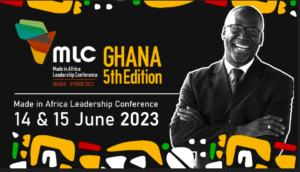“To know thyself is the beginning of wisdom” Socrates
I remember the first time I heard my own voice being played on a recording device. I was shocked to discover that my voice sounded different from the voice I was familiar with when I speak. Hearing my voice when it had been recorded and was being played back was strange; it sounded different from the voice that I always heard when I spoke. It bothered me a great deal, as I was more used to the voice I normally heard and this one sounded strange. I asked a friend if the voice on the recorder sounded like me, and he confirmed, “Yes, it is your voice.”
“But are you sure? Does it sound like me talking now?”
“Yes, Modupe, the voice on the recorder sounds the same as you talking now.”
That is when I realized that I did not hear myself the same way that others hear me; it took a voice recorder playing back my recorded voice for me to become aware of how I sound. After I made this discovery, I developed the habit of recording myself often and playing it back to recognize places where I needed to change my cadence, tone, breath control, enunciation, and pitch.
In many ways, the same thing happens to us as leaders. We believe that we come across to our people, our teams, our bosses, and our peers in a certain way based on how we perceive ourselves. However, it is often the case that how we see ourselves may be different from how others see us…and how others see us represents their reality which influences how they react to us and determines how successful we are in influencing them.
A couple who had been married for a few years were having difficulties relating to each other. The wife felt unloved and unappreciated after many years of marriage and complained about it. When the two of them would return home from their respective places of work, the man would typically eat dinner and then turn on the TV and relax by watching sports or a movie.
The wife’s attempts to get the husband’s attention were usually met with distracted grunts or complete deafness as his focus was solely on the television. When the complaints of the wife finally reached the ears of the husband – through a marriage counselor – the man’s response was indignant and telling: “How can she say I don’t love her? How can she say that I am not a good husband? Are we not still married? Do I not still provide for the house?” The husband’s perception of the state of the marriage was vastly different from his wife’s perception. His lack of awareness led him down a path of blissful ignorance that almost destroyed his marriage.
Earlier this year, I administered a psychometric assessment (personality profile) for a team of executives of a multinational company in Africa and we discussed each person’s results collectively as a team. The transformation that resulted was amazing. Some of the executives had no idea how they were coming across to others and how their personality preferences were being allowed to dominate their responses to various types of situations, often subconsciously.
Other executives became far more aware of the tendencies of their peers and were able to understand better why they would react to certain types of approaches and stimuli in ways that were vastly different from them. As a result of conducting this survey and sharing it with them, the team became better at relating with each other, and each executive became better at controlling their negative tendencies and managing their preferences to suit the situation at hand.
Awareness creates choice. Many of us make decisions based on what we are aware of and (sadly) what we are not aware of. A math teacher in Accra may make the choice to provide extra lessons to a schoolchild in Accra for GH¢400 a month to supplement her income because she is aware of the need for lessons and the willingness of the child’s parents to pay GH¢400 a month.
However, the teacher is also doing it because she is unaware that there are Ghanaian and African children in UK and USA in need of extra math lessons that can be provided via zoom and their parents are willing to pay GH¢2000 a month; so the teacher continues to provide her services for GH¢400 a month.
A student may eschew an opportunity to pursue university studies in a preferred university because of a lack of school fees and drop out or pursue a trade because he believes he is aware of the demand for security guards or carpenters.
However, the student may be unaware that he could utilize crowdfunding sources to raise the money and thus pursue his dream because he may never have heard of gofundme or givecampus; and thus, a lifetime of opportunity may elude him.
A business development professional may hire an assistant just to help him with scheduling appointments because he believes that sales appointments are the lifeblood of his sales business and maintaining a proper schedule for his various appointments is critical to his success. However, he may be unaware of Calendly which can do it for him easily and in real time with less cost than he may spend paying an assistant.
Dear African leader, take steps to improve your awareness of yourself and opportunities around you. Avail yourself of the psychometric assessment tools that are available online to improve your self-awareness so that you will know your strengths, weaknesses and triggers for optimal and sub-optimal behaviour. How you are perceived by others will determine how successful you are in influencing them. Leadership is influence. Improve your leadership by improving your self-awareness and your awareness of the world around you and its myriad of options available to you.











